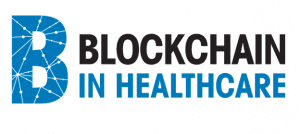Cambia Health Solutions is part of an Innovation Force for Blockchain — and Cambia Grove the New Kids on the Block for Entrepreneurs

Maura Little has just finished delivering the 2018 Strategic Vision outlook for Cambia Grove — a synergistic, healthcare-focused, innovation hub and community workspace — and collaboration is front and center of the mission statement.
With a 9,000 square foot, open-door facility, located at 1800 9th Avenue in the heart of downtown Seattle, Cambia Grove has made a physical commitment to Seattle’s community of developers, bridging the gap between entrepreneurs and the traditional healthcare sector.
In her strategic outlook, Maura is addressing the innovation hub’s philosophical commitment to building a more person-centric and economically sustainable system to drive large-scale healthcare transformation.
By creating a physical and intellectual hub for healthcare innovation, Cambia is tacking the challenges of health care through a community approach. “We want to connect a network of changemakers by building a community who will engage, act and drive transformation,” states the executive director. “That means nurturing entrepreneurs by providing programs and resources that support innovation and by curating partnerships and amplifying our vision.”
The approach is both “high concept” and “bottom-up” community building: Convene stakeholders around specific industry topics. Identify and research barriers preventing innovative efforts in the healthcare system. Catalyze solutions designed to transform the health care system. Whose to say that the keys of innovation in the way health care is deployed, distributed, or delivered will not open the door to greater opportunity than changing the way healthcare is negotiated or paid for

Maura began her journey in the healthcare sector in 2009 where she played a key role in communicating the federal Affordable Care Act to local stakeholders as a staff member for then Congressman Jay Inslee.
As the Washington State Director of the American Cancer Society Cancer Action Network, her perspective was greatly influenced by her work in patient advocacy. Then, as Governor Inslee’s Life Science and Global Health Sector Lead, Maura led strategic initiatives to put our region back on the map—from recruiting the 17th Annual NIH SBIR/STTR Conference to Washington for the first time in conference history, to working with startups to connect them to vital resources that will help them grow and thrive in the Northwest.
 Blockchain technology is like the Internet itself in that it has a built-in robustness. By storing blocks of information that are identical across its network, a blockchain cannot be controlled by any single entity and it is invulnerable to any single point of failure. No more missed transactions, human or machine errors, or even an exchange that was not done with the consent of the parties involved.
Blockchain technology is like the Internet itself in that it has a built-in robustness. By storing blocks of information that are identical across its network, a blockchain cannot be controlled by any single entity and it is invulnerable to any single point of failure. No more missed transactions, human or machine errors, or even an exchange that was not done with the consent of the parties involved.
How does it do it? By recording transactions not only on a main register but a connected distributed system of registers, all of which are connected through a secure validation mechanism.
At a recent Cambia Grove panel, Cambia Health Solution’s vice president of innovation, Max Janasik, explained how blockchain can materially improve prior authorization through the use of Smart contracts.


As Director of Innovation for Cambia Health Solutions, Nicole Cathcart explains how Blockchain solves the problem.
“Blockchain offers layers of security such as cryptography and digital signatures. These enable capabilities like requiring a doctor and patient to approve before releasing sensitive records. Distributed consensus enables ‘security by sharing,’ which spreads processing across nodes and reduces risk compared to single monolithic claims and EHR systems,” she advises.
Dubbed Innovation Force, Cambia Health Solutions’ internal innovation program ranges from software and mobile applications to healthcare marketplaces, non-traditional healthcare delivery models, health insurance, life insurance, pharmacy benefit management, wellness, and overall consumer engagement. Innovation has become a core component of the company’s culture, and the dramatic increase in employee engagement has supercharged collaboration and transparency across the business.


















